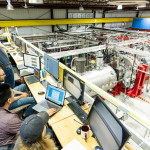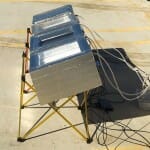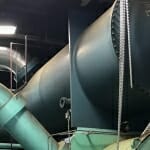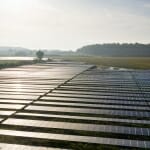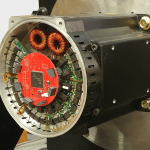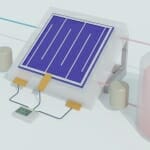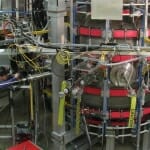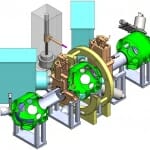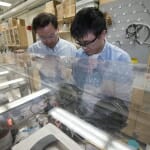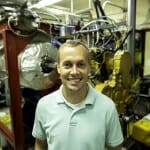Tag Energy
First plasma marks major milestone in UW–Madison fusion energy research
The fusion energy device known as WHAM transitioned to operations mode this week, marking a major milestone for the yearslong research project that’s received support from the U.S. Department of Energy.
UW–Madison, Alliant Energy collaborate on solar and agricultural research project
Beyond the production of renewable energy, Alliant Energy and UW–Madison are exploring future partnerships to advance the solar research project for education, demonstration and training purposes.
Bus shelters to get solar-powered displays
In a collaboration with student organizations interested in sustainability, Transportation Services will start installing solar panels, lights and screens with real-time arrival information on bus shelters in 2022.
New solar field gives UW a sustainable boost
O’Brien Solar Fields, the largest solar installation in Dane County, includes 60,318 bifacial panels capable of generating approximately 20 megawatts of renewable electricity. It's a partnership between Madison Gas & Electric, UW–Madison, and other businesses and groups.
Nuclear engineering research and education pioneer Max Carbon dies at 99
As founding chair of the Department of Nuclear Engineering, Carbon authored "Nuclear Power: Villain or Victim? Our Most Misunderstood Source of Electricity."
New condenser makes water from air, even in the hot sun
Unlike other radiative vapor condensers which can only operate at night, the new design works in direct sunlight and requires no energy input.
UW–Madison recognized for its water- and energy-saving initiatives
The heating and cooling plant improvements stem from an upgraded cleaning system for heat exchangers covering over 50,000 tons of the campus’s central plant chillers.
UW researchers’ evaluation puts MGE net-zero carbon goal on path to limit global warming
If actions similar to the Wisconsin utility's plan were also taken around the world, the researchers say, "it would be effective at keeping the planet under 1.5 degrees warming.”
UW–Madison supports largest solar development in Dane County
The university will purchase half of the energy produced by a 20-megawatt solar array that Madison Gas and Electric plans to build south of Madison.
Storing carbon dioxide underground may be feasible for helping achieve climate goals
A new study shows that underground reservoirs currently have capacity to store enough atmospheric carbon dioxide to limit planetary warming to under two degrees Celsius (35.6 degrees Fahrenheit) relative to pre-Industrial temperatures by the year 2100.
Solar cell, married to liquid battery, achieves record efficiency
The technology Professor Song Jin is advancing – unifying solar electricity generation with storage – could first be used in off-grid, standalone energy systems.

